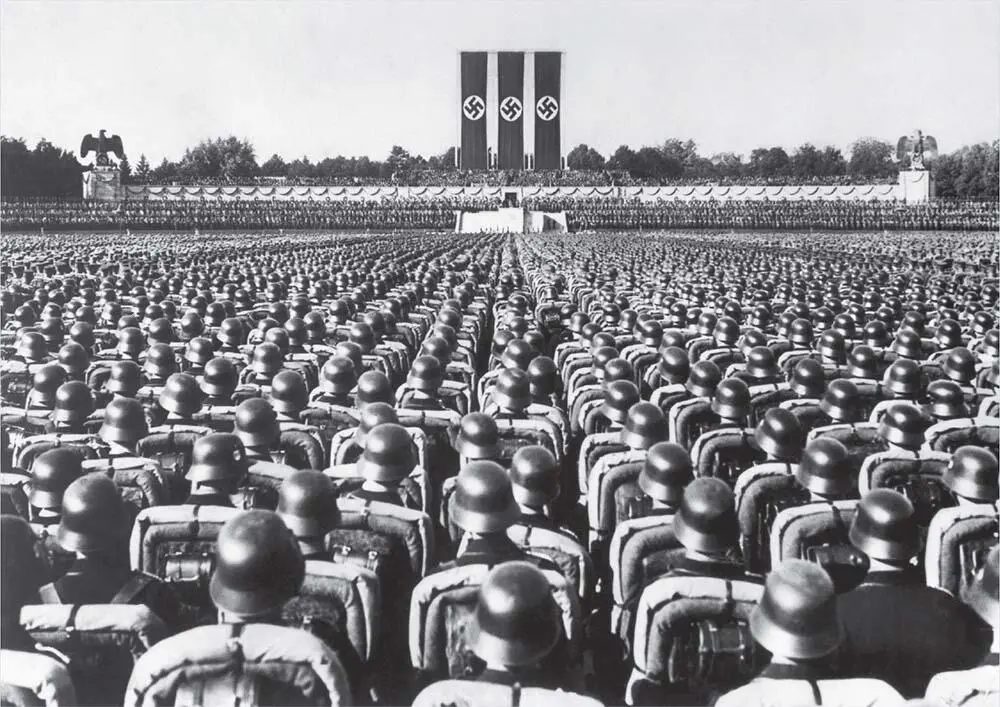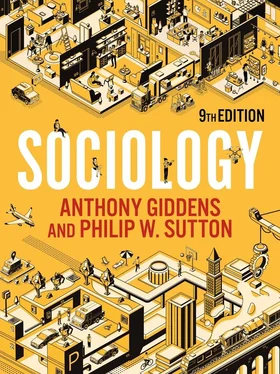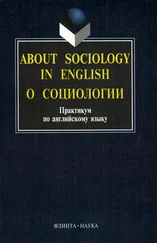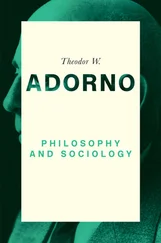For Marx, a theory of industrialism per se makes no sense. Industrial development required industrialists, and they were also capitalist entrepreneurs. To understand the industrial system means understanding that the new social relationships favour a few and disadvantage the majority. In addition, Marx’s perspective provides a useful reminder that factories, workshops and offices, along with smartphones, robots and the internet, do not materialize from thin air. They are the products of a system of antagonistic social relations, rooted in conflict, not consensus.
Marx’s perspective shows us that grand theorizing can be useful. The concept of a ‘mode of production’ allows us to place the welter of historical facts into a general framework, which makes them easier to understand. Many social scientists have operated with this framework, expanding, refining or criticizing it; and, though Marx’s theory may be flawed, most sociologists would agree that discovering those flaws has been immensely fruitful for the discipline as a whole.
Marx’s work also illustrates the main problem with grand theories: the difficulty of subjecting them to empirical testing. What would we have to find in order conclusively to prove a theory wrong? Does the fact that a communist revolution has not happened in the industrialized countries more than 170 years after the publication of The Communist Manifesto (1848) show that the theory’s central prediction was misguided? Later Marxists sought to explain exactly why a communist revolution did not occur and, in doing so, modified Marx’s ideas. ‘Classic studies’ 3.1 looks at one especially influential group – the Frankfurt School of critical theory.
Classic studies 3.1 Neo-Marxism: the Frankfurt School of critical theory
Marx forecast that a working-class revolution was at hand, but it did not materialize in his lifetime. Then, in 1917, the Russian Revolution amid the turmoil of the First World War seemed to indicate that, at last, Marx’s forecast was on the verge of being proved right. But communism did not spread into the industrialized countries. Instead, the 1930s saw the rise of fascism in Italy and Nazism in Germany, both of which were aggressively anti-communist movements. These developments presented Marxists with a dilemma: was Marx’s theory still adequate for understanding the development of capitalism? If it was, then an orthodox form of Marxism would remain valuable. But, if not, then new forms of Marxist theorizing (called neo-Marxism) would be needed.

The rise of right-wing fascist movements in Europe led to a rethinking of Marx’s ideas.
Marxist thought, in fact, developed in several directions over the twentieth century, particularly among ‘Western Marxists’, who rejected the Soviet version of communism (Kolakowski 2005). One group within Western Marxism has been especially influential – the Frankfurt School of critical theory. It was originally based at the Institute for Social Research in Frankfurt under the directorship of Max Horkheimer, but many critical theorists were forced out of Germany when the National Socialists expelled around one-third of the university’s staff, resulting in their relocation to Europe and America. The Nazis systematically undermined universities and removed or forced out many Jewish intellectuals.
Drawing on the ideas of Marx and Freud and the philosophy of Immanuel Kant, the Frankfurt School produced a series of important studies of capitalism, fascism, mass culture and the emerging consumer society in the USA. For example, Theodor Adorno (1976 [1950]) and his colleagues analysed the emergence and popularity of fascism as, in part, a consequence of the rise of an authoritarian personality type, susceptible to the attractions of a strong leader. Herbert Marcuse’s One-Dimensional Man (1964) distinguished between ‘real’ human needs and the many ‘false’ needs produced by the consumer form of industrial capitalism, with its seductive advertising, which suppressed people’s ability to think critically and instead produced a one-dimensional and uncritical form of thinking.
In studies such as these, we can see the Frankfurt thinkers attempting to come to terms with a very different form of capitalism from that which Marx had investigated and shifting their focus onto the sphere of culture rather than the economy. At the same time, the optimistic Marxist vision of a working-class revolution began to fade, as the obstacles to revolution seemed to mount in the consumer-capitalist societies.
The most recent critical theorist to exert an influence in sociology is the German social philosopher Jürgen Habermas. Among other things, Habermas devised a theory of ‘communicative action’ based on the deceptively simple notion that, when people make statements to each other (‘speech acts’), they expect to be understood. But asymmetrical power relations work systematically to distort such communication, giving rise to fundamental misunderstanding and a lack of debate. For instance, in employer–trade union discussions, the power imbalance favours employers; thus disputes are not settled rationally by the force of the better argument, as employers are able to use their power to impose a resolution. However, the solution is not to abandon modern ways of rational thinking, as some postmodern thinkers would have it, but to deepen modernity by defending and extending democracy and eliminating the inequalities of power and status that prevent equal, rational argumentation.
After the ending of the Soviet Union’s communist regime in 1991, Marx’s ideas, and Marxist theories generally, lost ground in sociology. Some even talked of a crisis in Marxist thought as a result of the demise of actually existing socialism and communism (Gamble 1999). However, the 2008 credit crisis and subsequent economic recession have reminded scholars that capitalism is an economic system that thrives on periodic booms and slumps. Though the Marxist theory of revolution may seem unsatisfactory, a broadly Marxist analysis of capitalist economies still plays a part in debates about social change. For instance, the Slovenian philosopher Slavoj Žižek (2011, 2012), while critical of some of Marx’s ideas, which he melds with other theories, still argues that communism is the only genuine alternative to capitalism. Even in the twenty-first century, it seems, serious scholars are still engaging in a debate with Marx.
Why has the communist revolution, forecast by Marx, not materialized? List all the factors that have prevented the working class from revolting against capitalism. Can we say that this theory has been conclusively and definitively falsified?
Comte, Spencer, Marx and other early theorists laid some of the foundations for sociology’s development, but there was no academic sociology in their time, and the subject had no institutional presence within universities. If sociology was to become part of Comte’s ‘hierarchy of the sciences’, then it needed to carve out a place alongside the natural sciences in the academy, where sociological training could be offered to students. In short, sociology needed to become respectable, and Emile Durkheim’s work in France went a long way towards achieving this. However, it took much longer for sociology to become established elsewhere.
Emile Durkheim: the social level of reality
Читать дальше













